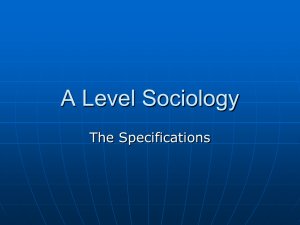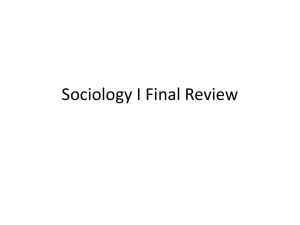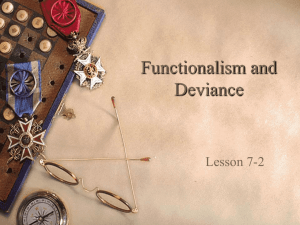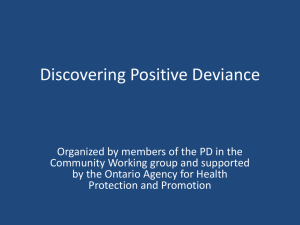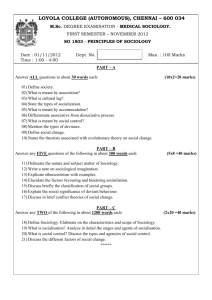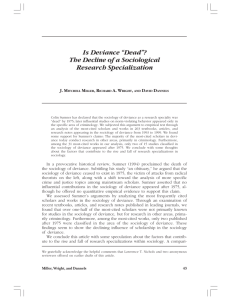Applied Sociology
advertisement
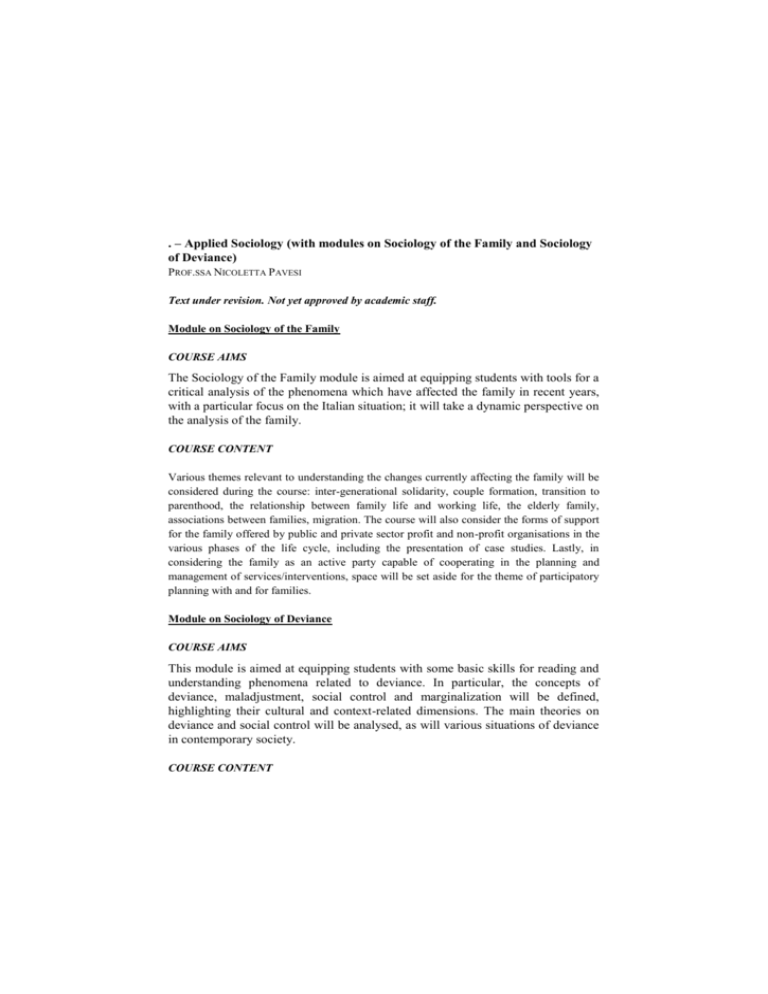
. – Applied Sociology (with modules on Sociology of the Family and Sociology of Deviance) PROF.SSA NICOLETTA PAVESI Text under revision. Not yet approved by academic staff. Module on Sociology of the Family COURSE AIMS The Sociology of the Family module is aimed at equipping students with tools for a critical analysis of the phenomena which have affected the family in recent years, with a particular focus on the Italian situation; it will take a dynamic perspective on the analysis of the family. COURSE CONTENT Various themes relevant to understanding the changes currently affecting the family will be considered during the course: inter-generational solidarity, couple formation, transition to parenthood, the relationship between family life and working life, the elderly family, associations between families, migration. The course will also consider the forms of support for the family offered by public and private sector profit and non-profit organisations in the various phases of the life cycle, including the presentation of case studies. Lastly, in considering the family as an active party capable of cooperating in the planning and management of services/interventions, space will be set aside for the theme of participatory planning with and for families. Module on Sociology of Deviance COURSE AIMS This module is aimed at equipping students with some basic skills for reading and understanding phenomena related to deviance. In particular, the concepts of deviance, maladjustment, social control and marginalization will be defined, highlighting their cultural and context-related dimensions. The main theories on deviance and social control will be analysed, as will various situations of deviance in contemporary society. COURSE CONTENT The following themes will be covered: - Concepts of maladjustment, deviance, marginalization, marginality and diversity. - Theories on deviance and social control, focusing particularly on the most recent theories, linked to social complexity. - Analysis of various phenomena related to maladjustment and deviance (drug addition, juvenile deviance, trafficking and so on). READING LIST The set texts for the module on Sociology of the Family are: G. ROSSI - D. BRAMANTI (EDS.), La famiglia come intreccio di relazioni. La prospettiva sociologica, Vita e Pensiero, Milano, 2012. E. CARRÀ, “Putting family first”: a sociological analisys of Doherty’s citizen professionalism and participatory approaches, in Italian Journal of sociology of education, 5, 2013, pp. 127-147, http://www.ijse.eu/wp-content/uploads/2014/01/2013_3_8.pdf W.J. DOHERTY, The citizen professional: working with families and communities in Problems people care about, http://www.dors.it/alleg/newcms/201210/SIPCO2012_WDoherty_Citizen%20Professional.pd f The set text for the module on Sociology of Deviance is: B. BARBERO AVANZINI, Devianza e controllo sociale, FrancoAngeli, Milano, 2004. Further reading material to study for the exam, will be announced during the course and posted on the lecturer’s web page, which students must refer to for the full reading list for the exam. TEACHING METHOD The course will alternate traditional lectures with active discussion and participation methods, with the use of life stories and audiovisual materials. Seminars for the presentation of research will also be organised. ASSESSMENT METHOD The exam consists of a written paper with three open questions, which may be supplemented with an oral exam. There will be no exams during the course or outside the official exam sessions. Students attending lectures may arrange alternative forms of exam. A prerequisite for the exam is that students must have passed the General Sociology course exam. The module on Sociology of the Family may be sat either separately or on the same date as the Sociology of Deviance module exam. The final mark will be an average of the two exam marks, and may be recorded after both exams have been successfully passed. Slides from the lectures, which are NOT a replacement for the set texts to be studied, may be downloaded from the lecturer’s web page. NOTES Further information can be found on the lecturer’s webpage at http://docenti.unicatt.it/web/searchByName.do?language=ENG or on the Faculty notice board.


